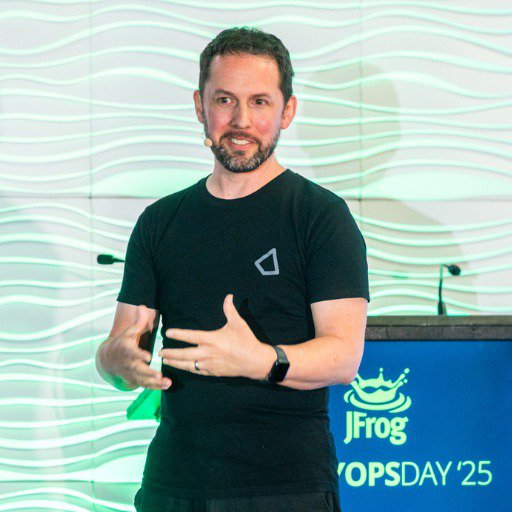Sydney, 29 October 2025 — At GitHub Universe 2025, GitHub announced Agent HQ—its vision for the next evolution of its platform. Agent HQ transforms GitHub into an open ecosystem that unites every agent on a single platform. Over the coming months, coding agents from Anthropic, OpenAI, Google, Cognition, xAI, and more, will become available directly within GitHub as part of developers’ paid GitHub Copilot subscription.
With 180 million developers, GitHub is growing at its fastest rate ever with a new developer joining every second. What’s more, 80% of new developers are using Copilot in their first week. AI isn’t just a tool anymore; it’s an integral part of the development experience. GitHub’s responsibility is to ensure this new era of collaboration is powerful, secure, and seamlessly integrated into the workflow developers already trust.
To bring this vision to life, GitHub is shipping a suite of new capabilities built on the primitives developers trust. This starts with a mission control, a single command center to assign, steer and track the work of multiple agents from anywhere. It extends to VS Code, with new ways to plan and customize agent behavior. And is backed by enterprise-grade functionality: a new generation of agentic code review, a dedicated control plane to govern AI access and agent behavior, and a metrics dashboard to understand the impact of AI on a developer’s work.
“We built Agent HQ because we’re developers, too. We know what it’s like when it feels like your tools are fighting you instead of helping you. When “AI-powered” ends up meaning more context-switching, more babysitting, more subscriptions, and more time explaining what you need to get the value you were promised. That ends today,
“Agent HQ isn’t about the hype of AI. It’s about the reality of shipping code. It’s about bringing order and governance to this new era without compromising choice. It’s about giving you the power to build faster, with more confidence, and on your terms,” said Kyle Daigle, COO, GitHub.
GitHub is your Agent HQ: An open ecosystem for all agents
The future is about giving developers the power to orchestrate a fleet of specialized agents to perform complex tasks in parallel, not juggling a patchwork of disconnected tools or relying on a single agent. As the pioneer of asynchronous collaboration, it’s GitHub’s responsibility to make sure these next-generation async tools just work.
With Agent HQ what’s not changing is just as important as what is. Developers are still working with the primitives they know—Git, pull requests, issues—and using their preferred compute, whether that’s GitHub Actions or self-hosted runners. They’re accessing agents through their existing paid Copilot subscription.
On top of that foundation, GitHub is opening the doors to a new world of capability. Over the coming months, coding agents from Anthropic, OpenAI, Google, Cognition, and xAI will be available on GitHub as part of a developer’s paid GitHub Copilot subscription. Starting this week, Copilot Pro+ users can begin working with OpenAI Codex in VS Code Insiders, the first of our partner agents to extend beyond its native surfaces and directly into the editor.
“Our collaboration with GitHub has always pushed the frontier of how developers build software. The first Codex model helped power Copilot and inspired a new generation of AI-assisted coding. We share GitHub’s vision of meeting developers wherever they work, and we’re excited to bring Codex to millions more developers who use GitHub and VS Code, extending the power of Codex everywhere code gets written,” said Alexander Embiricos, Codex Product Lead, OpenAI.
“We’re partnering with GitHub to bring Claude even closer to how teams build software. With Agent HQ, Claude can pick up issues, create branches, commit code, and respond to pull requests, working alongside your team like any other collaborator. This is how we think the future of development works: agents and developers building together, on the infrastructure you already trust,” said Mike Krieger, Chief Product Officer, Anthropic.
Mission control: Your command center, wherever you build
The power of Agent HQ comes from mission control, a unified command center that follows a developer wherever they work. It’s not a single destination; it’s a consistent interface across GitHub, VS Code, mobile, and the CLI that lets a developer direct, monitor, and manage every AI-driven task. With mission control users can choose from a fleet of agents, assign them work in parallel, and track their progress from any device.
We’re also providing:
- New branch controls that provide granular oversight over when to run CI and other checks for agent-created code.
- Identity features to control which agent is building the task, managing access, and policies just like developers would with any other developer on their team.
- One-click merge conflict resolution, improved file navigation, and better code commenting capabilities.
- New integrations for Slack and Linear, on top of GitHub’s recently announced connections for Atlassian Jira, Microsoft Teams and Azure Boards, and Raycast.
New in VS Code: Plan, customize, and connect
Mission control is in VS Code, too, giving developers a single view showing them all their agents running in VS Code, in the Copilot CLI or on GitHub.
And today’s brand new release in VS Code is all about working alongside agents on projects, and it’s not surprising that great results start with a great plan. Getting the context right before the project is critical, but that same context needs to carry through into the work. Copilot already adapts to the way teams work by learning from their files, and their project’s culture, but sometimes they need more pointed context.
So today, GitHub is introducing Plan Mode, which lets developers work with Copilot to build a step-by-step approach for their task, asking them clarifying questions along the way. Providing the context upfront improves what Copilot can do and helps developers find gaps, missing decisions, or project deficiencies early in the process—before any code is written. Once a developer approves, their plan goes to Copilot to start implementing, whether that’s locally in VS Code or using an agent in the cloud.
For even finer control, developers can now create custom agents in VS Code with AGENTS.md files, source-controlled documents that let them set clear rules and guardrails such as “prefer this logger,” “use table-driven tests for all handlers.” This shapes Copilot’s behavior without needing to re-prompt it every time.
Now developers can rely on the new GitHub MCP Registry, available directly in VS Code. VS Code is the only editor that supports the full MCP specification. Discover, install, and enable MCP servers like Stripe, Figma, Sentry, and others with a single click. When a developer’s task calls for a specialist, they can create custom agents in GitHub Copilot with their own system prompts and tools to define how they want Copilot to work.
Increased confidence and control for your team
Agent HQ doesn’t just give a developer more power—it gives them the confidence to use it. Ensuring code quality, understanding AI’s influence on their workflow, and maintaining control over how AI interacts with a codebase and organization are essential for a team’s success, and GitHub is tackling these challenges head-on.
When it comes to code quality, the core problem is that “LGTM” doesn’t always mean “the code is healthy.” A review can pass, but can still degrade the codebase and quickly become long-term technical debt. With GitHub Code Quality, in public preview today, developers have org-wide visibility, governance, and reporting to systematically improve code maintainability, reliability, and test coverage across every repository. Enabling it extends Copilot’s security checks to look at the maintainability and reliability impact of the code that’s been changed.
And GitHub added a code review step into the Copilot coding agent’s workflow, too, so Copilot gets an initial first-line review and addresses problems (before a developer even sees the code).
Organizations need to know how Copilot is being used. So today, GitHub is announcing the public preview of the Copilot metrics dashboard, showing Copilot’s impact and critical usage metrics across your entire organization.
For enterprise administrators who are managing AI access including AI agents and MCP, GitHub has focused on providing consistent AI controls for teams with the control plane – an agent governance layer. Users can set security policies, audit logging, and manage access all in one place. Enterprise admins can also control which agents are allowed, define access to models, and obtain metrics about the Copilot usage in your organization.
About GitHub
GitHub is the world’s leading platform for agentic software development — powered by Copilot to build, scale, and deliver secure software. Over 180 million developers, including more than 90% of the Fortune 100 companies, use GitHub to collaborate, and more than 77,000 organisations have adopted GitHub Copilot.




